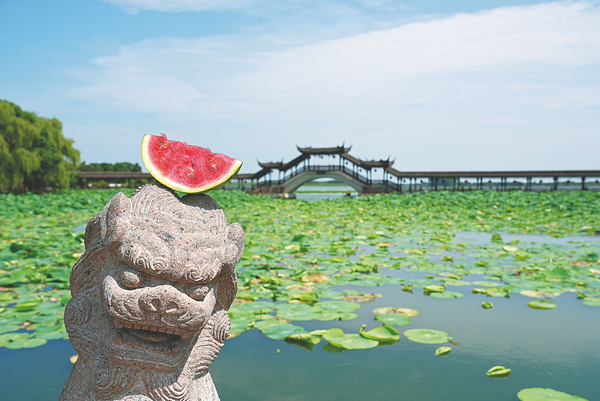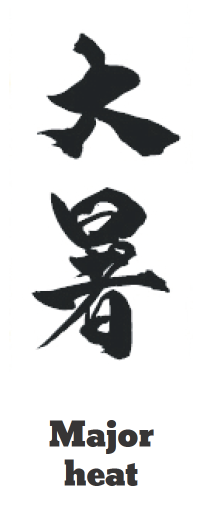

There's no place to hide as ultimate solar term of summer arrives, Yang Yang reports.
At 6 minutes 49 seconds past 4 am, most parts of China entered the hottest period of 15 days in 2022. In ancient times, Chinese people named this period Dashu, or the Major Heat. It is the 12th of the 24 solar terms on the traditional Chinese calendar, the last solar term of summer.
One month has passed since the overhead sun reached its northernmost latitude on the Summer Solstice. As it is traveling back toward the equator, the star, however, seems not to have loosened its grip, continuing to scorch the North Hemisphere of the planet.
In the oppressive dog days, time seems to stop as it is broiling both in the morning and the afternoon with the stridulation of cicadas buzzing in the background.
Cicadas may stridulate on, but the woods sound even quieter, as a Chinese poem goes. In muggy summer afternoons, dragonflies hover low, preying over a pond in the middle of outspreading green lotus leaves. Fragrant lotus flowers, in bud or blooming, stand gorgeously upright in pink or white. Down in the water, fish swim on the surface gulping for air.

On summer nights of the first five days of Dashu, ancient Chinese people observed a natural wonder. Rotten grass turned into another form of life-fireflies. But now scientists have found that fireflies that live in the land lay eggs in dead grass, and during this period of time, young fireflies mature and airily fly out, bellies flickering.
For ancient Chinese people, fireflies bear many symbolic meanings. They symbolized summer, love and hope.
In the Eastern Jin Dynasty (317-420), a young man called Che Yin, whose family could not afford lamp oil, caught dozens of fireflies and put them in a bag so that he could study at night. This story has become a part of an idiom used to describe hardworking students.